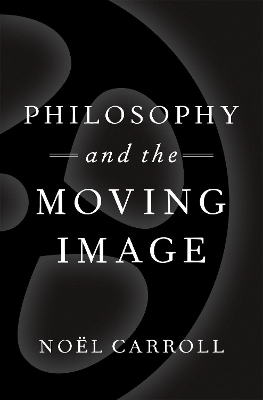THINKING ART
1 total work
A wide-ranging, eclectic collection of essays on philosophy and the moving image by a pre-eminent philosopher of art
This volume presents a selection of philosopher Noël Carroll's essays-several of which appear in print here for the first time-at the intersection of philosophy, film, and television. The volume begins with broad, foundational issues-what the moving image is, the nature of the medium of film and how we should evaluate it-engaging critically with the most essential problems and puzzles in the field. Carroll then moves to more focused issues in the philosophy of film and television. He
reflects on whether ethical defects in fictional characters such as Tony Soprano have an impact on artistic excellence; the role of films in political debates (using the examples of Star Trek and Planet of the Apes); the question of whether film can do philosophy in its own way; and philosophical themes in
avant-garde cinema. His analysis touches on a broad range of areas in philosophy including metaphysics, epistemology, ethics, politics, and aesthetics. The book then concludes with philosophical re-assessments of key figures in the philosophy of the moving image-Sergei Eisenstein, Arthur Danto, Bela Balasz, and Stanley Cavell. A wide-ranging and eclectic collection of work by a major figure in aesthetics and the philosophy of film and television, this volume will appeal to scholars, students,
and cinephiles alike.
This volume presents a selection of philosopher Noël Carroll's essays-several of which appear in print here for the first time-at the intersection of philosophy, film, and television. The volume begins with broad, foundational issues-what the moving image is, the nature of the medium of film and how we should evaluate it-engaging critically with the most essential problems and puzzles in the field. Carroll then moves to more focused issues in the philosophy of film and television. He
reflects on whether ethical defects in fictional characters such as Tony Soprano have an impact on artistic excellence; the role of films in political debates (using the examples of Star Trek and Planet of the Apes); the question of whether film can do philosophy in its own way; and philosophical themes in
avant-garde cinema. His analysis touches on a broad range of areas in philosophy including metaphysics, epistemology, ethics, politics, and aesthetics. The book then concludes with philosophical re-assessments of key figures in the philosophy of the moving image-Sergei Eisenstein, Arthur Danto, Bela Balasz, and Stanley Cavell. A wide-ranging and eclectic collection of work by a major figure in aesthetics and the philosophy of film and television, this volume will appeal to scholars, students,
and cinephiles alike.
